Humans
Sign up for our newsletter
We summarize the week's scientific breakthroughs every Thursday.
-
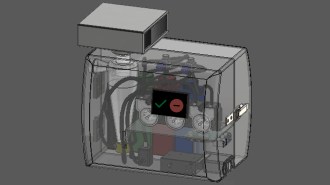 Health & Medicine
Health & MedicineA new device can detect the coronavirus in the air in minutes
The detector can sense as a few as seven to 35 coronavirus particles per liter of air — about as sensitive as a PCR test but much quicker.
-
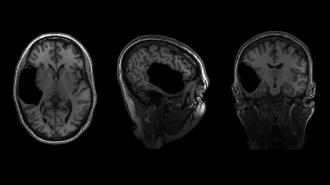 Neuroscience
NeuroscienceElyse G.’s brain is fabulous. It’s also missing a big chunk
A new project explores interesting brains to better understand neural flexibility.
By Meghan Rosen -
 Earth
EarthWildfires aren’t going away. Here’s how smoke can affect your health
How does repeat exposure to wildfire smoke affect our health? Three experts weigh in on the massive air pollution fueled by Canada’s ongoing fires.
By Meghan Rosen -
 Humans
HumansLauren Schroeder looks beyond natural selection to rethink human evolution
Paleoanthropologists studying the fossil record have long focused on natural selection, but other processes play a big role too.
By Anna Gibbs -
 Health & Medicine
Health & Medicine50 years ago, scientists thought coffee might treat hyperactivity
Decades of follow-up research into whether caffeine can treat the symptoms of kids with ADHD has come up with more questions than answers.
By Aina Abell -
 Psychology
Psychology‘Fires in the Dark’ illuminates how great healers ease mental suffering
Kay Redfield Jamison’s new book examines approaches used throughout history to restore troubled minds and broken spirits.
By Bruce Bower -
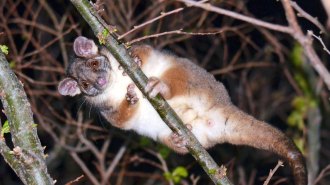 Life
LifeIn Australia, mosquitoes and possums may spread a flesh-eating disease
Field surveys show that genetically identical bacteria responsible for a skin disease called Buruli ulcer appear in mosquitos, possums and people.
-
 Archaeology
ArchaeologyHow Asia’s first nomadic empire broke the rules of imperial expansion
New studies reveal clues to how mobile rulers assembled a multiethnic empire of herders known as the Xiongnu more than 2,000 years ago.
By Bruce Bower -
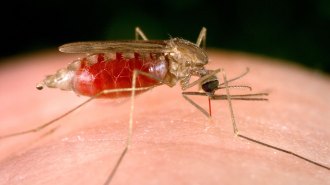 Health & Medicine
Health & MedicineFour things to know about malaria cases in the United States
Five people have picked up malaria in the United States without traveling abroad. The risk of contracting the disease remains extremely low.
-
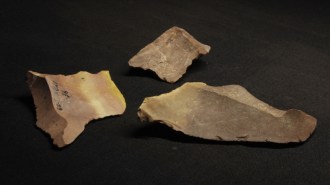 Archaeology
ArchaeologyIndigenous input revealed early hints of fiber making in the tropics
To decipher marks on nearly 40,000-year-old stone tools and figure out what they were used for, researchers turned to the Philippines’ Pala’wan people.
-
 Psychology
PsychologyBoys experience depression differently than girls. Here’s why that matters
Boys’ depression often manifests as anger or irritability, but teen mental health surveys tend to ask about hopelessness.
By Sujata Gupta -
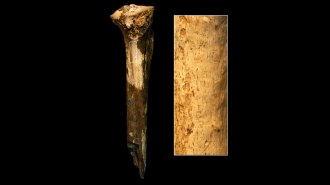 Anthropology
AnthropologyFossil marks suggest hominids butchered one another around 1.45 million years ago
Researchers disagree whether new evidence of stone tool marks on a hominid leg bone reflects ancient cannibalism or perhaps some other, undetected behavior.
By Bruce Bower